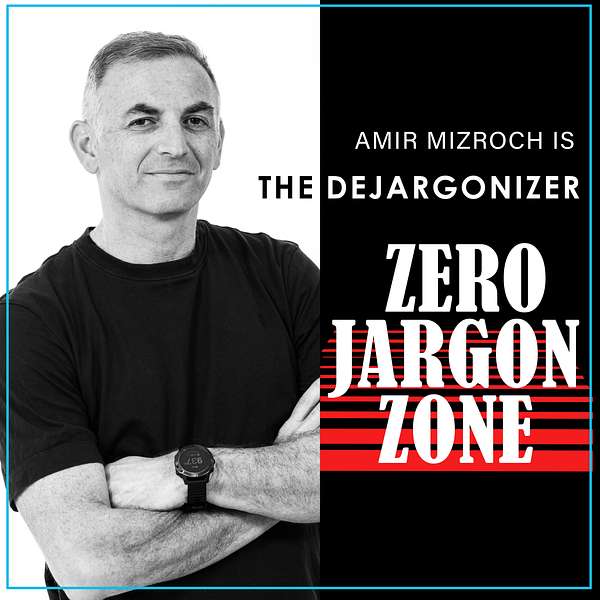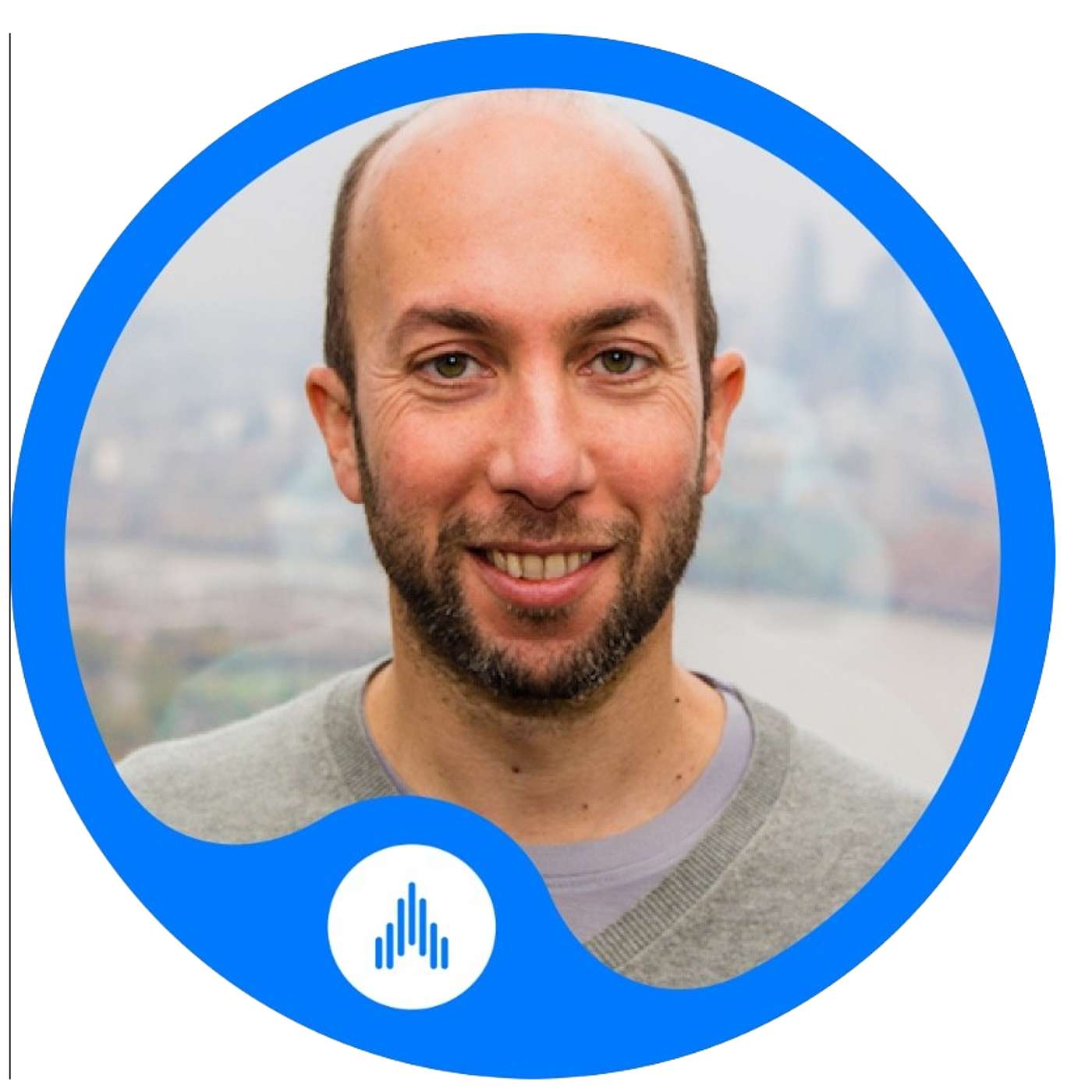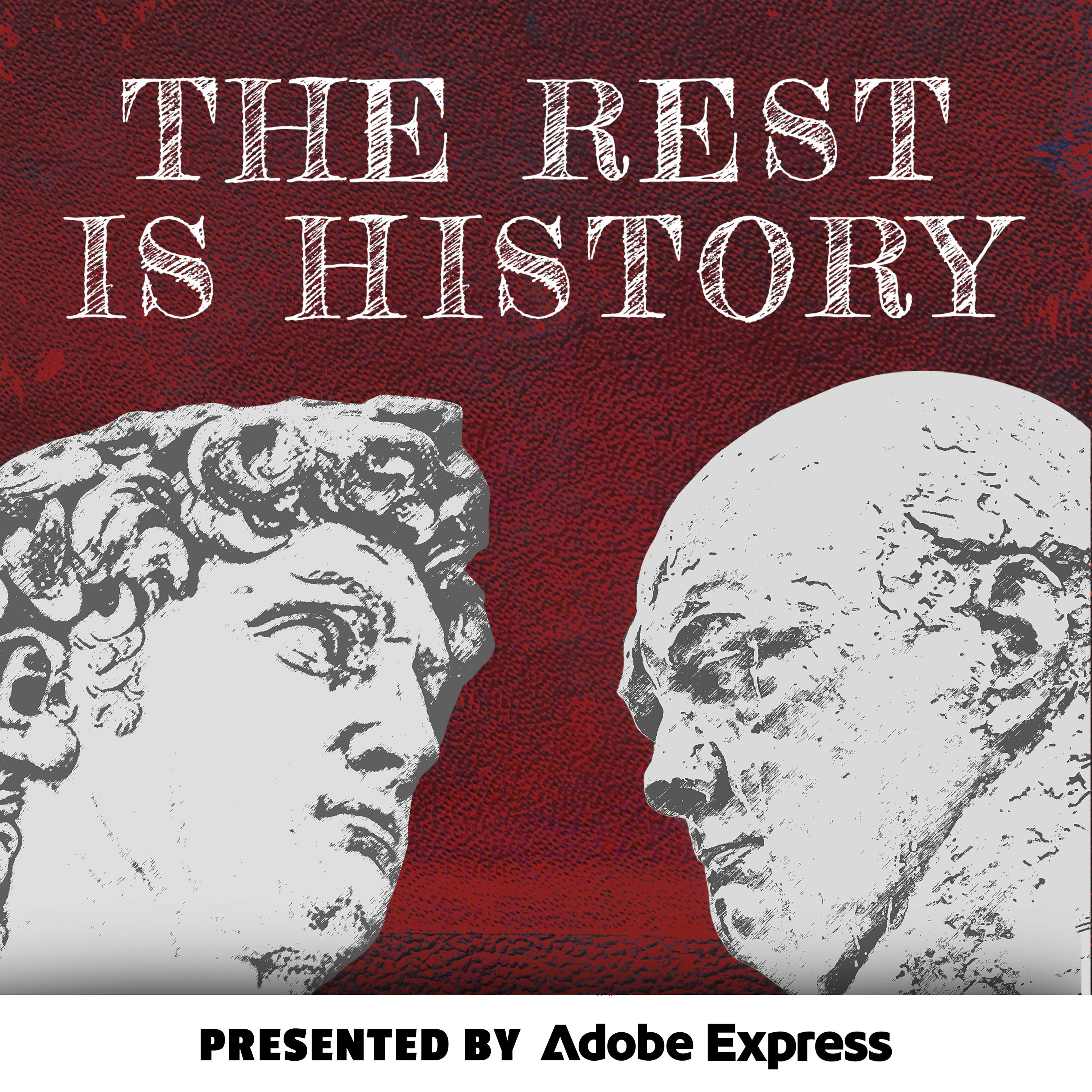
The Dejargonizer
A Deep-Tech Deep-Dive "HARDTalk for Startups" show. From Amir Mizroch, ex EMEA Tech Editor, The Wall Street Journal
The Dejargonizer
Don't Throw the Blockchain Baby Out With the Crypto Bathwater
Leave your preconceptions about cryptocurrency at the door, because this conversation focuses on telling the story of the potential underpinning the blockchain technology itself.
In this episode we're joined by Adi Ben Ari, founder and CEO of Applied Blockchain. As a veteran who has been part of the blockchain journey since for the past decade, Adi is our guide through the complex landscape of blockchain technology. Adi has been a part of the blockchain journey for the past ten years, making him an experienced guide to navigate the complex world of blockchain technology.
Adi explains how Shell uses blockchain to manage financial instruments and how the United Nations has adopted this technology for fund transfers to refugees. These real-life examples make the subject of blockchain more interesting and easier to understand.
This episode aims to demystify the complexities of blockchain, showcasing its potential while providing a clear understanding of its benefits and limitations.
Join us as we explore the fascinating world of blockchain technology and its impact on our lives.
Listen
Apple Podcasts, Spotify, or anywhere you get podcasts.
Connect
LinkedIn
Twitter
Newsletter
Email: amir@orangegrovecomms.com
Amir Mizroch: Welcome to The Dejargonizer. I'm your host Amir Mizroch. In this podcast, I speak to startup founders and subject myself to their tech jargon to decipher what their company really does. I do this to find out if there's a bigger story there that matters to broader audiences like you. You may have seen negative headlines about the cryptocurrency industry, but it's important to remember that these issues are not inherent to the blockchain technology itself.
Today, we're joined by Adi Ben Ari, the founder and CEO of Applied Blockchain. This episode isn't about crypto; it's about the blockchain itself. What is it? How is it built? How does it work? And what kind of applications can be run on it? It's time to separate the bad press about cryptocurrency from the groundbreaking potential of blockchain technology.
Amir Mizroch: Adi, you started a company called Applied Blockchain in 2015. Can you tell me a little bit about how you started the company and why?
Adi Ben Ari: I started the company because I looked at Ethereum, which had just been published. Ethereum is another blockchain, different from the original one (Bitcoin). Blockchain is the name used for the technology, and crypto is a manifestation of that technology for creating digital assets and open networks.
Amir Mizroch: So you could buy drugs, guns...
Adi Ben Ari: That's if somebody was willing to send you something if you transfer bitcoins to their account. But as a blockchain, it's just about transferring coins from one account to another.
Amir Mizroch: Adi, what is the opposite of a smart contract? Is it a dumb contract?
Adi Ben Ari: The name is not the greatest. It's really just a set of code rules that dictate what will happen to these tokens. When people had paper ledgers, then spreadsheets, and then databases, we thought databases were great. They brought a tremendous level of efficiency to financial institutions. This is an evolution in computer science. So we've got this way of storing who owns our stuff, our digital stuff. That's the secure infrastructure layer called the blockchain. Then on top of that, we can run these applications, like iPhone apps. If we have digital tokens that represent money and digital tokens that represent the house, you can send your house into the smart contract, I can send my money into the smart contract, and the smart contract has some coded rules that we can both see. If I've got the house and I've got the money, then I'll send the house to the buyer and the money to the seller. Otherwise, I'll give them both the money and their asset back. And that's all it can do.
Amir Mizroch: Adi, maybe house contracts are happening on the Ethereum blockchain, but most of what I'm hearing and seeing happening on these platforms are currency transactions.
Adi Ben Ari: I'm talking about the technology. People will take it and do what they want with it. People took the internet, and the biggest use of it in the beginning was porn. That doesn't mean that the internet is useless. People will do bad things on the internet. You're talking about digital money? So of course, people are going to go nuts with it. And they do. And the other side of it is that the poor consumer or investor finds it very difficult to understand what's behind it, what's secure, what's fraud, and what isn't.
Amir Mizroch: So, if there's that much fraud and confusion, why should a broader business audience or just a broader audience interested in tech and its impact on the future look at the blockchain space?
Adi Ben Ari: The reason is because of the technical efficiency. Banks moved on to spreadsheets and then to databases because they could run 100 times faster, cheaper, more securely, and more efficiently. The blockchain is the best technology infrastructure we have available today for trading. There is currently no more efficient technical way of trading than a blockchain.
Amir Mizroch: Your clients include Shell, KLM, and the United Nations. What is Applied Blockchain building for these companies?
Adi Ben Ari: Shell has a team that trades on its behalf, dealing with different types of energy. They need to use financial instruments to offset the risk of price movements. They came to us to explore blockchain technology as something that could potentially change the way they manage their activity and make it more efficient. The UN has several projects we've been involved in, the most famous and successful one is called Building Blocks, a program for transferring funds to refugees in refugee camps. They use blockchain as a ledger between agencies, allowing them to track the numbers and accounts more easily. In Building Blocks, they have shops in the refugee camps that enable people to receive food through identity recognition, such as iris scans, and then the shop will give the person the food, and it will be deducted from their account without the need for card payment.
Amir Mizroch: How are the infrastructure products you're developing different from the applications you're building?
Adi Ben Ari: Good question. The blockchain itself is a kind of layer where you have the asset records and accounts, and then the apps run on top. We're providing infrastructure for the blockchain to connect to things outside of it. For example, Ethereum and Algorand are two different blockchains, and they don't know how to talk to each other. But you might have your house on one and my money on the other, and we still want to trade.
Amir Mizroch: In terms of talking to each other, what does that technically mean?
Adi Ben Ari: A blockchain can't easily trust something that happens outside of it. We have various techniques for dealing with that, extending the trust of the blockchain to those other places.
Amir Mizroch: Tell me about one of these techniques, in the most basic language.
Adi Ben Ari: The biggest hacks were people compromising bridges, which are connectors between blockchains. We've built and experimented with different technologies, using Intel SGX, which stands for Secure Guard Extensions. Imagine inside the Intel processor, there's another box called a Secure Enclave. Whatever you put in there can't get out, except under certain circumstances, so you can do things in there which even someone with access to the machine can't get into.
Amir Mizroch: So we're talking about blockchain infrastructure products like these bridges?
Adi Ben Ari: That's correct. On the blockchain, you have anonymity but not privacy. One of the good things about the blockchain is that you can see everything, but that's also a problem. We're trying to connect data that's outside the blockchain with things happening on the blockchain.
Amir Mizroch: When you say data outside of the blockchain, can you give me an example?
Adi Ben Ari: Most of the assets you see at the moment are digital assets like cryptocurrencies, native to the blockchain. But with an asset that comes from outside the blockchain, like a house, you need to build a link to the deed. You need some sort of source of data or authority that is responsible for the ownership of that asset. The same is true for financing; if I want to lend to someone through the blockchain, I might want to check a source of data, like credit records, credit history, or bank accounts, to know who I'm dealing with.
Amir Mizroch: So, like a deed that's been—
Adi Ben Ari: Exactly. You need some sort of source of data or authority that is responsible for the ownership of that asset. The same is true for financing; if I want to lend to someone through the blockchain, I might want to check data sources like credit records, credit history, or bank accounts to know who I'm dealing with.
Amir Mizroch: Could another kind of chain potentially help us make sure that the things we buy don't come at a massive cost to the planet? Blockchain technology is very good at decentralizing, but it's also inefficient, slow, and energy-consuming. For example, Bitcoin's network takes 10 minutes, on average, to confirm a transaction.
Amir Mizroch: So, it seems like in the future, we're going to be doing a lot more real-world stuff through the blockchain because it's more efficient and secure, but we're not there yet. That's why we should keep our eyes on the blockchain.
Adi Ben Ari: Yes, if you ask a computer scientist at a university who's dealt with the blockchain, they will confirm that the technical efficiency is there, and tokenization of assets is the direction they're expecting things to go. Tokenization is a process where some form of assets are converted into a token that can be moved, stored, or recorded on a blockchain. The process of tokenization digitally represents an asset in the form of a token to put real-world assets like land or a house on the blockchain.
Amir Mizroch: I think I understand what these infrastructure products are and the privacy-preserving part of it. But what is a data Oracle?
Adi Ben Ari: A data Oracle is a mechanism or piece of infrastructure that allows the blockchain to receive data from outside. This is the bridge you mentioned, which is more a term used to connect blockchains to each other. If I'm on the blockchain and I want to know something about data stored outside of it, I need a way to receive and trust that information. An oracle is the technical term for the solution that would provide that.
Amir Mizroch: That's helpful. So your company, Applied Blockchain, is focusing on these bridges and Oracles in between so that on-chain, off-chain, or intra-chain transactions can speak to each other and transact digitally in a secure and privacy-preserving way. Is that correct?
Adi Ben Ari: Yes, that's correct.
Adi Ben Ari: We develop apps on these blockchains as well as products that connect blockchains to other things, like other blockchains or data sources outside the blockchain.
Amir Mizroch: Many people have seen news from the crypto space and decided that it's a scam. Is it over for the blockchain too?
Adi Ben Ari: The general consensus is that the technology is efficient. The problem lies with the actors in the crypto space. It's not very regulated, and some people in the blockchain space believe that decentralized technologies will take over everything. But like any technology, it's good at some things and not great at others. For example, it's not suitable for storing sensitive data like medical records. It's great for storing data that shouldn't be changed or proof of information that shouldn't be changed.
Amir Mizroch: What should a broad business audience be looking for when examining this information?
Adi Ben Ari: The applications are coded, so anyone who knows how to code can understand what they do. There will be experts that help people understand the risks. These applications are transparent, unlike financial institutions where you have to take someone's word for what's going on inside. With these, you can see it all. They can't change the rules once you put your money in there, making the technology secure and potentially useful, reliable, and trustworthy. People will become more familiar with it over time, and there will likely be some regulation to protect people from bad actors.
Amir Mizroch: What do you hope Applied Blockchain will be working on in a few years' time?
Adi Ben Ari: We're focused on bridging web 2.0 or the existing accounts and places where our data is held as individuals and companies with the blockchain technology and efficiency of the blockchain networks themselves.
Amir Mizroch: Do you think you'll become like the Cisco or Oracle of the blockchain world?
Adi Ben Ari: That would be nice, perfect.
Amir Mizroch: Adi this has been great. Thank you for your time, your patience.
Thanks for listening, and I'll be back soon with more dejargonizations. In the meantime, check out my newsletter, Thedejargonizer.substack.com. The Dejargonizer is produced and edited by Astrid Landon.






